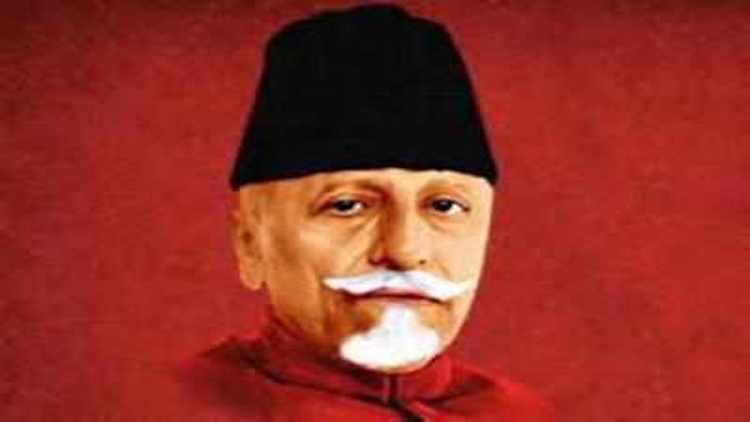Maulana Abul Kalam Azad On Hindu-Muslim Harmony

On the occasion of the 131st birth anniversary of Bharat Ratna Maulana Abul Kalam Azad, who was independent India’s first education minister, writer, journalist, Gandhian and freedom fighter, here’s a speech given by him. It seems as relevant today as it was immediately after independence.
Azad worked for Hindu-Muslim unity and was among the Muslim leaders who opposed the theory of a separate Muslim nation, that is Pakistan. In 1905, despite unanimity by Muslims, Bengal was divided and Azad became active in revolutionary activities.
Azad worked clandestinely to organise revolutionary activities and meetings in Bengal, Bihar and Bombay and won praise and confidence. His rebellious nature and attraction to politics made him lean towards journalism. In 1912, he started an Urdu weekly by the name of ‘Al-Hilal’ and openly attacked British policies while finding out the challenges faced by the common people. However, it was banned in 1914. In 1923, he became the youngest President of the Indian National Congress. In 1942, he was chosen as the main spokesperson of the Congress during the Quit India Movement. He was Congress President between 1940 and 1945. He opposed Jinnah’s Two-Nation Theory. He refused to believe that Muslims and Hindus are two separate nations and rejected the concept of a nation formed on the basis of Islam. He asked all Muslims to stay in India. Azad was elected as the Member of Parliament from Uttar Pradesh’s Rampur district in 1952 and became India’s first Education Minister. He was a prominent revolutionary of the Dharasana Satyagraha. He was President of the Indian National Congress from 1940 to 1945, when the Quit India Movement was organised. Like other major leaders of the Congress, he too had to spend three years in prison. He believed in scientific learning and was instrumental in building many educational institutes. It was during his tenure that the country’s first IIT, IIS and University Grants Commision (UGC) was constituted. In 1989, on his birthday, the government of India created the Maulana Azad Education Foundation to encourage education. In 1992, he was posthumously awarded the Bharat Ratna. He wrote many books, among which ‘India Wins Freedom’ remains popular. He wrote the book ‘Ghubar-e-Khatir’ while in jail. Also included among his written works are ‘Hijr-o-Wisal’, ‘Khutbat-e-Azad’ and ‘Humari Azadi’. Also, his birthday on November 11 each year is celebrated as the National Education Day. There are many educational institutions named after him, among which are Maulana Azad Medical College, Delhi and Maulana Azad National Urdu University, Hyderabad. Apart from this, there are other institutes named after him in Bhopal, Kolkata, Aligarh, Jammu and other cities. Watch the full report here:
Also Read:
Azad worked clandestinely to organise revolutionary activities and meetings in Bengal, Bihar and Bombay and won praise and confidence. His rebellious nature and attraction to politics made him lean towards journalism. In 1912, he started an Urdu weekly by the name of ‘Al-Hilal’ and openly attacked British policies while finding out the challenges faced by the common people. However, it was banned in 1914. In 1923, he became the youngest President of the Indian National Congress. In 1942, he was chosen as the main spokesperson of the Congress during the Quit India Movement. He was Congress President between 1940 and 1945. He opposed Jinnah’s Two-Nation Theory. He refused to believe that Muslims and Hindus are two separate nations and rejected the concept of a nation formed on the basis of Islam. He asked all Muslims to stay in India. Azad was elected as the Member of Parliament from Uttar Pradesh’s Rampur district in 1952 and became India’s first Education Minister. He was a prominent revolutionary of the Dharasana Satyagraha. He was President of the Indian National Congress from 1940 to 1945, when the Quit India Movement was organised. Like other major leaders of the Congress, he too had to spend three years in prison. He believed in scientific learning and was instrumental in building many educational institutes. It was during his tenure that the country’s first IIT, IIS and University Grants Commision (UGC) was constituted. In 1989, on his birthday, the government of India created the Maulana Azad Education Foundation to encourage education. In 1992, he was posthumously awarded the Bharat Ratna. He wrote many books, among which ‘India Wins Freedom’ remains popular. He wrote the book ‘Ghubar-e-Khatir’ while in jail. Also included among his written works are ‘Hijr-o-Wisal’, ‘Khutbat-e-Azad’ and ‘Humari Azadi’. Also, his birthday on November 11 each year is celebrated as the National Education Day. There are many educational institutions named after him, among which are Maulana Azad Medical College, Delhi and Maulana Azad National Urdu University, Hyderabad. Apart from this, there are other institutes named after him in Bhopal, Kolkata, Aligarh, Jammu and other cities. Watch the full report here:
Remembering India's first Education Minister Maulana Abul Kalam Azad on his birth anniversary through his speech on Hindu-Muslim harmony.#MaulanaAbulKalamAzad pic.twitter.com/y0vVQrKfYn
— GoNewsIndia (@GoNews_India) November 11, 2019
Latest Videos
















